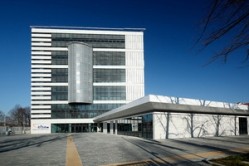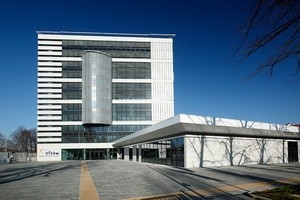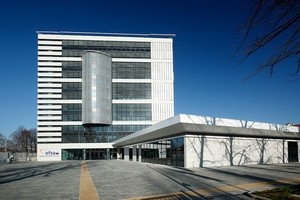Spain forum will allow outstanding questions on feed applications to be heard: EFSA

The European Food Safety Authority (EFSA) has released a draft agenda for the workshop – the overall goal of which is to discuss questions on the scientific evaluation of applications related to feed additives.
A spokesperson for the Parma based agency told us: "This is the first time we’ve had such a technical meeting with feed applicants."
The risk assessor said the forum will be run over two days and will be a two-way process.
"The workshop is designed to allow applicants to exchange views with and pose questions to EFSA staff and experts on scientific issues related to the preparation, submission and risk assessment of applications," said the spokesperson.
Topics lined up for discussion include the new EFSA guidance on feed additive approvals, assessment of dossiers for re-evaluations, and assessments of chemically and botanically defined flavorings.
The EU feed and food risk assessor said participants can also indicate ahead of time, via the registration form, any subjects they wish to have addressed during the meeting other than those included in the agenda.
The agency said it will allocate time to address as many of those additional challenges identified as possible.
Outstanding questions
Last summer saw EFSA announce it was to increase the number of technical hearings it offers to applicants to give them greater opportunity to discuss outstanding questions about their applications during the food and feed additive risk assessment process.
Steve Pagani, EFSA communications spokesperson, told us then the agency was aiming to be more ‘customer’ orientated.
“The team here, to be fair, is always looking to find ways to better engage with stakeholders, whether that is individual companies, food safety agencies or member states,” he said.
Participation at the Barcelona event is limited to 120 participants.
EFSA says the workshop is open to anyone with an interest in the topic including applicants with experience, future applicants, industry associations, EU competent authorities, academia, public and private research institutes and non-governmental organizations.
The details on the feed technical meeting can be found here.
![EFSA wants to identify the crowd that could be successfully engaged to perform crowdsourcing in areas relevant to its risk assessment activities. [pic: (c) istock.com/ilyast]](/var/wrbm_gb_food_pharma/storage/images/_aliases/wrbm_medium/9/5/2/1/2761259-1-eng-GB/EFSA-looks-to-weigh-up-the-pros-and-cons-of-crowdsourcing-tools.jpg)














